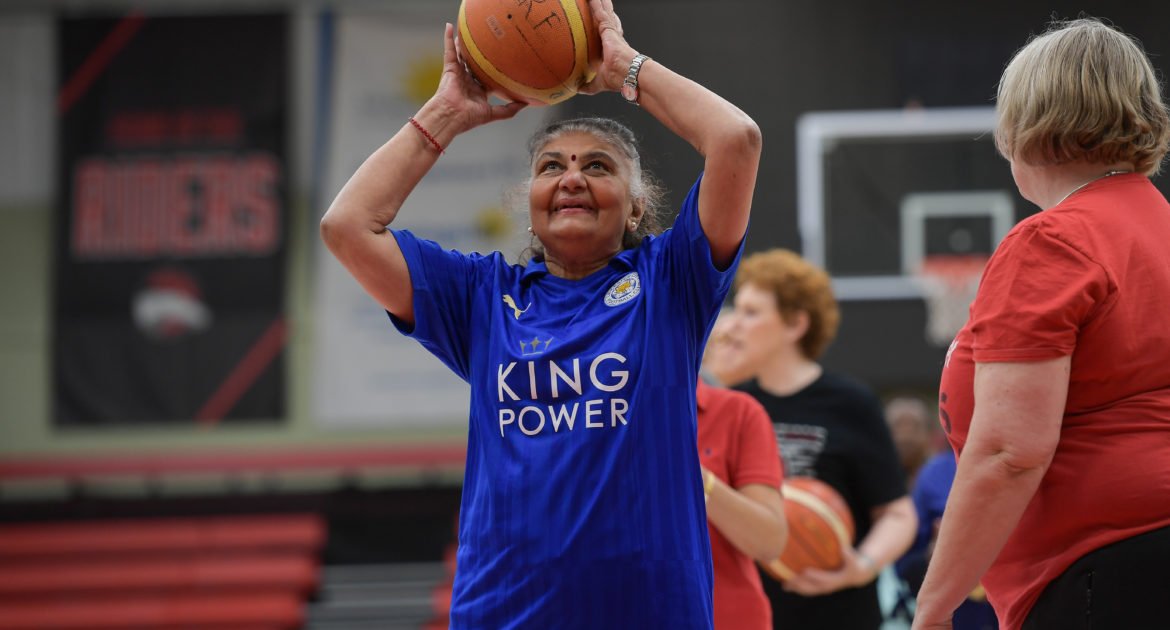Physical activity programme improves lifestyles of South Asian communities in Leicester
An educational physical activity programme aiming to tackle rising rates of type 2 diabetes in the South Asian community has proven to have a lasting impact on the health of people taking part, with 100 per cent of the participants adopting a healthier diet following the course.
Since the development of Healthy Goals in 2018, the evidence-based lifestyle programme has helped 84 individuals to introduce physical activity into their daily routines.
New data from the Centre for Ethnic Health Research shows that nearly 90 per cent of participants who have completed the Healthy Goals programme reported being more physically active after the completion of the course and 68 per cent lost weight.
In addition, the figures have revealed that 87 per cent of participants reported sitting less than at the start of the programme, while 50 per cent of those who have completed the course have seen a reduction in their waist circumference.
The Centre for Ethnic Health Research and the Leicester Diabetes Centre (LDC) worked with Cities Changing Diabetes, Leicester City in the Community (LCitC) to deliver Healthy Goals.
Sunny Rohit, Community Engagement Officer at the Centre for Ethnic Health Research, said: “The latest research is a testament to the profound impact of Healthy Goals on the wellbeing of our participants.
“Witnessing 100 per cent adoption of healthier diets post-programme is not just a statistic, it is a reflection of our commitment to cultivating lasting change.”
He added: “Healthy Goals goes beyond the conventional; it’s a platform for active discussions and physical activity sessions that resonate with Leicester’s South Asian communities.”
Healthy Goals is a 12-week education and physical activity programme aiming to promote healthy lifestyles by encouraging active discussions and physical activity sessions with Leicester’s South Asian communities.
Following the completion of the course, one participant said: “I have become more aware and alert to my cooking style, including the amount of oil and ghee I use. I now opt for more fresh vegetables in my cooking.” Meanwhile, another stated: “I want to be healthier for me and my family, so I take more time to ensure I make the right decisions.”
There is evidence to suggest that South Asians are at an increased risk of developing type 2 diabetes and that they typically do not engage with traditional health promotion programmes locally as they are not culturally appropriate or not relevant to them.
The Centre for Ethnic Health Research aims to reduce ethnic health inequalities by supporting individuals and organisations to involve and understand the needs of ethnic minority and underserved communities when planning and undertaking research and healthcare delivery.
Professor Kamlesh Khunti, Co-Director of LDC and Director of the Centre for Ethnic Health Research said: “These outcomes speak volumes about the programme's efficacy in promoting holistic health changes among participants.
“The risk of type 2 diabetes is a looming concern for South Asian communities, and addressing it requires innovative and culturally sensitive approaches.
“Physical activity is a cornerstone of diabetes prevention, and tailored programmes such as Healthy Goals are vital.” For more information, click here.


